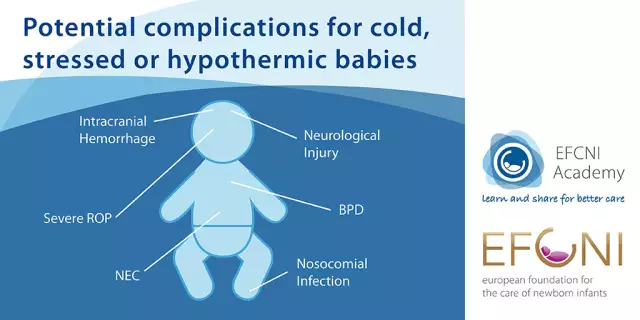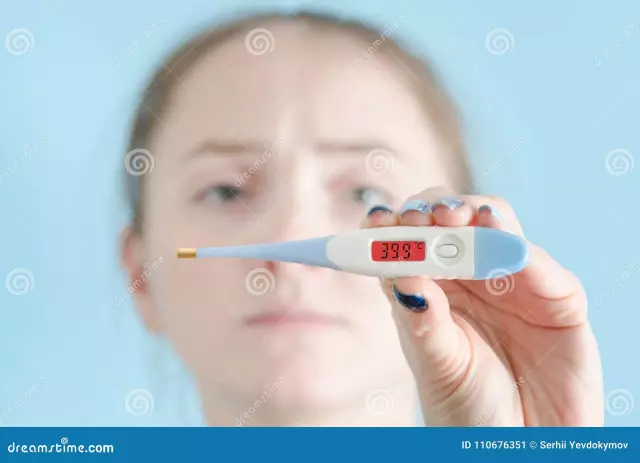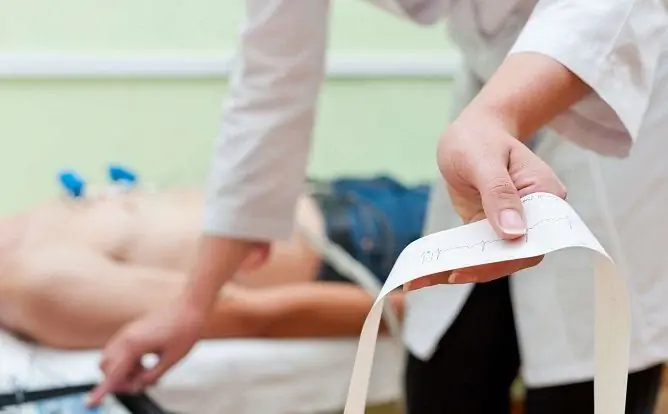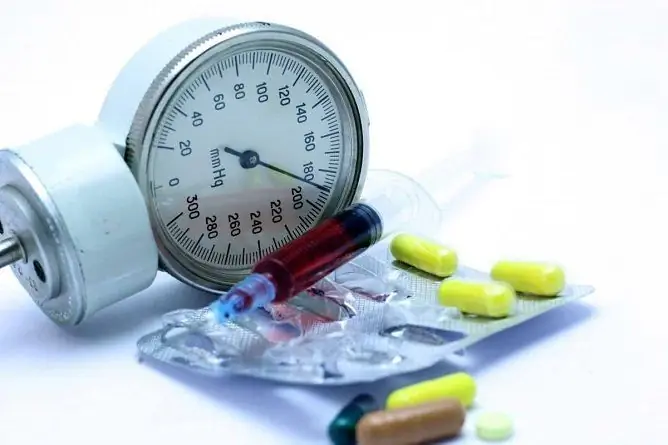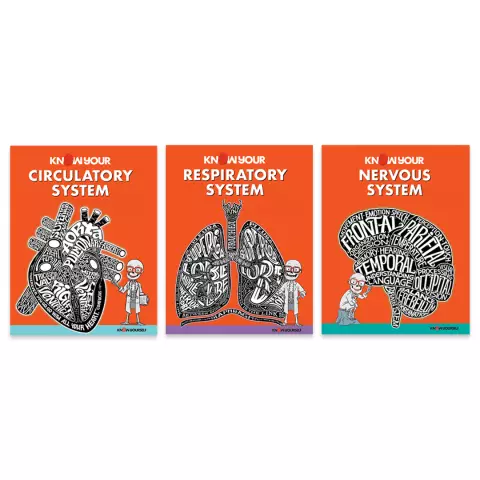- Author Rachel Wainwright wainwright@abchealthonline.com.
- Public 2023-12-15 07:39.
- Last modified 2025-11-02 20:14.
12 causes of low body temperature
Everyone knows that an increase in body temperature is a sign of ill health. However, too low a temperature (hypothermia) can also indicate the presence of diseases, especially when it is observed for a long time. Such a condition is dangerous because, unlike fever, it does not cause serious inconvenience: patients usually complain only of weakness, drowsiness, and apathy. Sometimes chills and a feeling of coldness in the limbs join. Many people with such symptoms do not go to doctors at all, considering them a consequence of accumulated fatigue. Nevertheless, medical intervention is necessary here.
The body temperature is lower than 35.8 ° C. It can be difficult to establish the factors that caused it without a thorough examination, but most often this condition is caused by the reasons that we will tell you about.
Low hemoglobin
A lack of hemoglobin, which has developed due to iron deficiency in the body, often causes a decrease in body temperature and the appearance of concomitant symptoms (rapid fatigue, loss of vitality and appetite, decreased mental activity, etc.). If these phenomena occur regularly, you need to contact a therapist and ask to prescribe a blood test.

Source: depositphotos.com
Internal bleeding
The cause of the development of internal bleeding can be damage or increased permeability of the walls of blood vessels due to trauma, tumor growth, metabolic disorders, etc. The chronic process does not have active external manifestations, and blood loss is reflected only in general well-being. One of the symptoms is a drop in body temperature. This is a dangerous condition that requires immediate medical attention.

Source: depositphotos.com
Pregnancy
Sharp fluctuations in hormonal levels can provoke the development of hypothermia. In a pregnancy without pathologies, the temperature returns to normal levels as the woman's body adapts to the new condition.

Source: depositphotos.com
Vascular problems
Sometimes a decrease in body temperature occurs intermittently and is accompanied by such phenomena as headache, dizziness, nausea, intolerance to bright light or loud sounds. This complex of symptoms is characteristic of vascular dystonia. Unpleasant sensations appear against the background of a sudden short-term vasodilation.

Source: depositphotos.com
Diabetes
In people with diabetes, the oxidation mechanism of glucose, the main source of energy, is impaired. At the beginning of the pathological process, they have constant thirst, increased urination, a feeling of numbness in the limbs, an increase in body weight and temperature fluctuations (including its frequent or persistent decrease).

Source: depositphotos.com
Adrenal pathology
A decrease in body temperature is associated with disruptions in the adrenal cortex, in which there is a deficiency of cortisol, aldosterone and androgenic hormones. The condition is also manifested by hypotension, tachycardia, arrhythmia, loss of appetite, impaired swallowing and frequent mood swings (irascibility, irritability).

Source: depositphotos.com
Tumors of the brain
The center responsible for maintaining a constant temperature in the body is located in the hypothalamus. A neoplasm (malignant or benign) that occurs in this area disrupts the regulation of heat transfer processes. Patients suffering from such tumors, along with headaches and dizziness, often complain of chills and a feeling of coldness in the limbs.

Source: depositphotos.com
Asthenic syndrome
The immediate cause of asthenia is oxygen deficiency in the tissues of the human body. This slows down the processes of oxidation and energy production by the body. People with asthenic syndrome have shortness of breath, pale skin, imbalance and visual disturbances (“flies” in front of the eyes), apathy.

Source: depositphotos.com
Skin lesions
Hypothermia is common in patients with dermatitis, psoriasis, or severe skin lesions (eg, ichthyosis).

Source: depositphotos.com
ARVI
It is customary to associate increased body temperature with seasonal viral infections, but this is not always the case. The fever usually lasts in the first days of the disease, but during the recovery period many patients suffer from weakness and hypothermia (in the morning the temperature does not rise above 36 ° C), associated with recent stress and a temporary decrease in the body's defenses.
Are you sick? No problem! Oscillococcinum will help your immune system cope with SARS and influenza.
If you take Oscillococcinum as soon as you notice a deterioration in well-being, then the drug can stop the development of the disease. There will be no exhausting days with high fever, sleepless nights due to a stuffy nose and a forced diet due to a sore throat!

Source: depositphotos.com
Intoxication
Body temperature sometimes drops due to poisoning with chemicals, food (for example, mushrooms), or drugs. This is due to the inhibition of vital functions (respiration, cardiac activity, etc.) caused by intoxication. Similarly, the body can react to alcohol overdose.

Source: depositphotos.com
Hypothermia
Prolonged exposure to frost or rain causes a strong drop in body temperature, accompanied by obsessive chills and pallor of the skin. If the victim can be quickly warmed, the unpleasant symptoms disappear. This, however, does not mean that a person does not need medical attention: hypothermia can have very unpleasant health consequences, including distant ones.

Source: depositphotos.com
Hypothermia is an alarming sign that requires a full examination. This symptom should be taken seriously, in no case should self-medicate and consult a specialist in time.
YouTube video related to the article:

Maria Kulkes Medical journalist About the author
Education: First Moscow State Medical University named after I. M. Sechenov, specialty "General Medicine".
Found a mistake in the text? Select it and press Ctrl + Enter.

